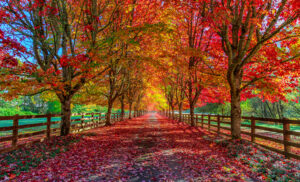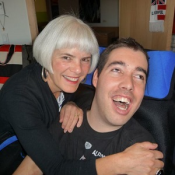 Fall and winter bring cooler nights and darker mornings. Along with the temperature and light changes, many people are also dealing with back-to-school changes for themselves or their children. There are changes in schedules, routines, expectations, and even relationships.
Fall and winter bring cooler nights and darker mornings. Along with the temperature and light changes, many people are also dealing with back-to-school changes for themselves or their children. There are changes in schedules, routines, expectations, and even relationships.
Though many people consider spring to be a time of new beginnings, autumn is that for many people. It is a time of reflection on the summer and the year thus far, as well as a time of preparation for the winter and upcoming holidays. As we enter the harvest season, consider the physical, emotional, and relational ways you may be affected by this transition.
The impact of light and temperature on the human body is profound. We all need some level of light and warmth for our bodies to survive and thrive. Autumn, for some parts of the world, marks a change in both light and warmth as we approach colder and darker days.
Consider the ideal temperature and amount of light that you physically desire. Do you love the bright sun and hot weather? Or do you prefer cooler temperatures with less intense sunlight? Are you more active now than you were two months ago? Or are you struggling to be physically active? Whatever your preference, the change in season will affect you. Understanding and responding to your needs will help you prepare for whatever season is approaching.
Many people struggle with seasonal affective mood issues, commonly referred to as seasonal affective disorder (SAD)—a depression related to the change in seasons. For most, this begins in fall and continues through the winter months. It’s marked by moodiness, low energy, difficulty sleeping, a lack of interest in activities and relationships, feeling hopeless, and an overall sense of depression. Known more casually as “the winter blues,” SAD can have a significant impact on your mood and relationships. If you are more irritable, withdrawn, or moody during the winter months, the time to plan and prepare is now.
“Vanessa” called me at the beginning of August wanting therapy to plan for the winter. I was impressed that she was being so proactive. “I can’t do winter like that again,” she told me when I praised her. She wasn’t willing to experience another winter feeling as low as she did last year, so she wanted to do it differently this time.
To help you prepare for the upcoming season, ask yourself the following questions:
- Do you find yourself sleeping more? Are you struggling to get out of bed?
- Is it harder or easier to exercise now?
- Do you feel less patient? Are you easily annoyed or irritated?
- Do you feel more energized and productive?
- Has there been a shift or change in any of your relationships in recent weeks?
- Are you actively involved in your relationships?
Answering these questions could give you some insight about how the change in season may or may not be affecting you. Regardless of whether you are affected by SAD, there are three key points that will help you navigate and manage any seasonal changes.
- Exercise, exercise, exercise. Moving your body on a regular basis has far-reaching, positive effects on your physical and emotional health. You don’t need to train for a marathon. Walking around your neighborhood, doing push-ups, running around outside with children—these all have the same benefit.
- Get more light. Everyone needs to be exposed to sunlight on a daily basis. Since many jobs can be done indoors, this often takes effort. But the benefits are great, physically and emotionally. Our bodies absorb vitamin D, important to our health, from sunlight. And the energy and emotional boost that we get from a few minutes in the sun can be exceptional.
- Talk it out. All transitions have their challenges, and it’s always easier when you’re talking to someone about it. Whether you’re talking to a friend, coworker, or therapist, let someone into your inner thoughts and experiences.
What works best for you as you enter a new season? What tips or techniques do you have to share with others? Share your experiences with us. Let’s learn from each other!

The preceding article was solely written by the author named above. Any views and opinions expressed are not necessarily shared by GoodTherapy.org. Questions or concerns about the preceding article can be directed to the author or posted as a comment below.

 Does Your Calendar Reflect Your Life's Priorities?
Does Your Calendar Reflect Your Life's Priorities? Because I'm Happy! (In Spite of Everything)
Because I'm Happy! (In Spite of Everything) How to Help Someone with Depression
How to Help Someone with Depression

